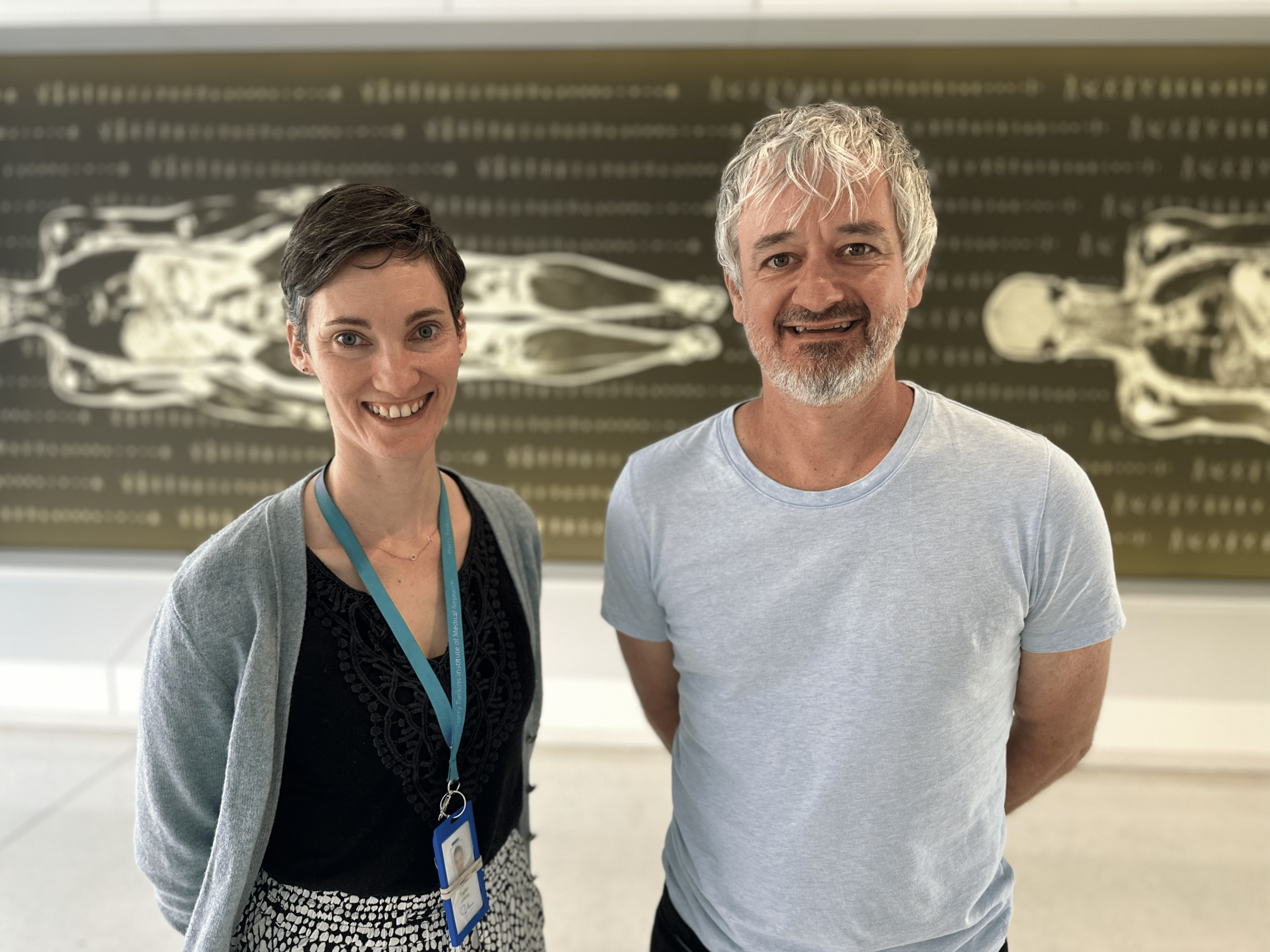
Molecular geneticist developing treatments for children suffering devastating muscle weakening conditions and scientist investigating human brain development and neurodevelopmental disease origins awarded Fellowships.
An innovative fund to retain outstanding young scientists in Western Australia has awarded fellowships to Dr Rhonda Taylor and Dr Chuck Herring to pursue their research with the confidence that they will be funded for the next three years.
The plan called Safe Harbour is the brainchild of Perth’s Harry Perkins Institute of Medical Research. It is designed to provide more sustainable career paths for scientists establishing their scientific careers, allocating funds raised by West Australians.
Dr Taylor (pictured above, left), who is part of a team researching genetic causes of muscle weakening diseases says, “this funding will enable me to work on developing new treatments for children who are born with, or develop in infancy, terrible diseases that affect the muscles that control movement.
“For these children, breathing and swallowing is a major challenge. Quite often they need lifelong feeding as well as ventilator and mobility support. Tragically many die during childhood because there are no cures or treatments available.
“To develop treatments, it is critical to first develop models of these diseases which can be used to test new treatments. These models will help us identify treatments that are safe and effective for children.
“Certainty is not something experienced by many medical researchers, especially those in the early and middle stages of our careers”, Dr Taylor said.
Fellowship recipient, Dr Herring (pictured above, right) was part of the team that recently developed a world-first map showing gene activity changes in diverse human brain cell types from pre-birth to adulthood. That discovery, published in the international journal ‘Cell’ gave insights into cell function changes in neurological diseases such as brain cancers and debilitating disorders such as schizophrenia.
“Security of funding will enable me to further that research and develop valuable data resources for a range of scientific fields including epigenetics and neurodevelopmental disorders.
“The epigenome controls gene activity during normal development and is disrupted in diseases.
“Gene activity in the human brain changes until the third decade of life, indicating the need to consider these changes when studying mental disorders.
“With this funding I will investigate differences in the epigenome and gene activity between people with and without neuropsychiatric disorders such as Rett syndrome, schizophrenia, and ADHD.
“This will enable a better understanding of how these disorders start and progress, with the goal of identifying targets for new treatments,” Dr Herring said.
Harry Perkins Institute Director Professor Peter Leedman AO said the work of these young researchers was exceptional.
“They have both published widely, are recognised in their respective fields and collaborate with national and international researchers.
“But the incomes and careers of early and mid-career scientists like Dr Taylor and Dr Herring are dependent on their ability to secure research income from the major grant funding bodies such as the National Health and Medical Research Council and the Australian Research Council and the national success rate for those grants is less than one in ten.
“That means less than 10% of researchers, nationally, receive a grant. It is a tragedy for Australia that many young researchers are leaving the industry because of a lack of career stability.
“Early to Mid-Career Researchers are the engine room of laboratories. Typically, each has had 10-15 years intensive post-secondary education and training, averaging an investment of $500,000,” Professor Leedman said.
The Harry Perkins Institute’s Safe Harbour program aims to support its leading early and mid-career researchers with two Fellowships per year for three years.
